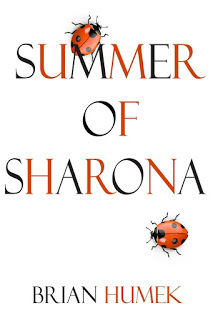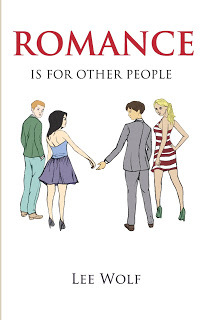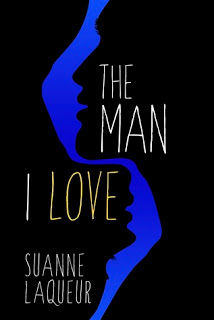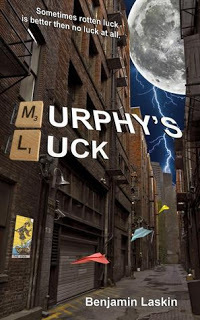Sandra C. Lopez's Blog, page 377
September 11, 2015
Review: SUMMER OF SHARONA by Brian Humek
 Ashley was riding with her aunt when she first heard “My Sharona” on the radio. At the time, it was the only thing that brought a smile to her face after her drug-addict stepfather lost his temper yet again.
Ashley was riding with her aunt when she first heard “My Sharona” on the radio. At the time, it was the only thing that brought a smile to her face after her drug-addict stepfather lost his temper yet again. Story had a rather slow beginning as the featured setting was at a White Sox baseball game at a time when people were turning against disco. Throughout the whole game, all you heard was “Dis-co Sucks!” But it seems that Ashley dreams of far-away places, to get away from her evil stepfather once and for all, even though the drama was sort of downplayed. In fact, the whole thing was rather humdrum.
The Summer of Sharona is simply the summer of the song’s soaring popularity, a summer of youth, fun in the sun, and jamming to a variety of tunes. It almost reminds me of American Graffiti in which everything (drama, love confessions) happens in this one summer, taking you on a fleeting tour of 1979. In fact, it felt like the era was the focal point and the characters were the background revolving around it. This was an interesting format, but it just wasn’t compelling enough for me.
My rating: 2.5 stars
Published on September 11, 2015 07:25
September 9, 2015
Review: ALSO KNOWN AS LARD BUTT by Ann Herrick
 It's Jr. high school, and Laura is looking for a change, to sprout from her cocoon and spread her colorful wings. If only she can escape her horrible nickname, the one branded on her by the little red-headed, crooked-toothed punk.
It's Jr. high school, and Laura is looking for a change, to sprout from her cocoon and spread her colorful wings. If only she can escape her horrible nickname, the one branded on her by the little red-headed, crooked-toothed punk. This definitely took me back to the cruel school days of teasing, pranks, and bullying. Mostly these are things that you get over, but being labeled "fat" sticks with you. And with her "generous" proportions, it was difficult for Laura to hide and shrink away from the other kids. Well, no more! She vowed to make a big splash this year. Why not join the swim team? Boy, it would be really hard to hide all her fat in a bathing suit.
Throughout the story, the reader is regaled by the insecurities, fears, and obsessions of a fat girl in the blasé world of Jr. high. Still, Laura tries to make the best of it by having fun with the swimming, exercising, and eating a piece of flan at her friend's Mexican restaurant. Of course, the best--and often more ubiquitous--scenes of Jr. high are the ones where you make a total fool of yourself.
Story is simple and relatable, albeit a bit mediocre at times, but I think that we would all be able to see a little of ourselves in Lard Butt.
My rating: 3 stars
Published on September 09, 2015 08:02
September 4, 2015
Review: GROWING PAINS: KENDRA'S DIARIES by K.P. Smith
 "Times do change, but experiences are timeless." (9)
"Times do change, but experiences are timeless." (9) Growing Pains relays the story of Kendra Foster, an awkward and insecure 13-year old living in New Orleans. Like any kid, she must contend with the pressures and anxiety of school, homework, peer rivalry, boys, and family. To make matters worse, her parents can't afford much and spend many hours arguing. Yeah, sounds like a typical childhood.
At first, the story took on a slow pace with Kendra's obsession with cheerleading tryouts and "praying" for a second chance. Praying seems to happen a lot for this kid, even though "God doesn't listen." Well, she is going to a Catholic school. But even though the story recovered the superficiality and monotony of my school days, still, I had no interest in all that God stuff.
“Don’t be a quitter. Life will bring about many difficult situations and the last thing you want to do is start quitting when things get hard. This is a painful but important choice you’ll have to make. The most important lesson for you to learn from this is that life is about choices and we have to live with the consequences of the choices we make.” (19) Even at a young age, Kendra must still make choices for herself. But just like with everybody else, her own worst critic, her own worst enemy, is herself. Fear is a constant barricade for her, and she resents the "life of her house"--all the "fussing, fighting, all the drama."
"I wanted a normal life, a normal family. I wanted to live in a happy home, a home where people got along, and loved each other—a home anyone would want to come home to. I couldn’t even enjoy the times when my parents weren’t fighting because I was so on edge, not knowing how and when the fighting would begin again. I felt like I was in prison, with no hope of parole." (50) Although Kendra is timid and reserved, she is also bright and intuitive. She somehow strives to rise above her shoddy environment. I liked how she dedicates herself to having "no regrets." Most people would be able to admire and relate to her in some way.
Written with a prosaic style and a degree of tedium, Growing Pains, nonetheless, ingeniously wraps all the teenage angst in one neat, little package. I didn't quite dive into this story whole-heartedly, but this novel will surely provoke nostalgia and motivation in many readers.
My rating: 3.5 stars
Published on September 04, 2015 07:55
September 1, 2015
Review: ROMANCE IS FOR OTHER PEOPLE by Lee Wolf
 Chris and Lydia are just friends, but Lydia has been in love with Chris for years. When he finally agrees to take her to a high school dance, Lydia figures that this could be her shot of showing him how she really feels. But her BFF role was clinched with Chris' impromptu remark: "Romance is for other people." Ouch!
Chris and Lydia are just friends, but Lydia has been in love with Chris for years. When he finally agrees to take her to a high school dance, Lydia figures that this could be her shot of showing him how she really feels. But her BFF role was clinched with Chris' impromptu remark: "Romance is for other people." Ouch! Written in he said/she said fashion, story seems to reflect the rocky bumps of high school relationships. Rather than being a conventional ride of ups and downs, however, story actually coasted bleakly across a dry, underdeveloped plot. All I kept on hearing was each of them whining about the "status" and the "meaning." This is SO high school.
Things shake up a bit when the awkward twosome turns into a complicated foursome. It seems some other guy might be trying to get back at his ex-girlfriend by flirting with Lydia and Chris doesn't like it, but then the ex-girlfriend might have an ulterior motive too. It was just a mess. And then going back and forth between the Chris and Lydia POV didn't help much, and then, to top it off, we go back in time.
Not only did the story lack clarity and consistency, but it also had some typos. Now, normally I can bypass typos if the story is captivating enough, but, in this book, there were a few that didn't make sense. For example, "and before I even thought about it, I put my arm around my shoulder. I could feel him stiffen...I finally took my arm off his shoulder and gave a disappointed look." I think this was supposed to be "I put my around his shoulder." I mean, how can you put your arm around your own shoulder?
I thought this story would be a fitting read of candy crushes and puppy love and, to a point, it is; but it just didn't suit me.
My rating: 2.5 stars
Published on September 01, 2015 08:51
August 24, 2015
Review: HONEYMOON FOR ONE by Lily Zante
 Ava Ramirez has been dumped by her fiancé weeks before the wedding date. So it was quite bold that she decided to go on her honeymoon anyways. Well, who wouldn’t? A trip to Italy? I’m SO there!
Ava Ramirez has been dumped by her fiancé weeks before the wedding date. So it was quite bold that she decided to go on her honeymoon anyways. Well, who wouldn’t? A trip to Italy? I’m SO there!But it’s true though: You don’t need a man to validate you.
Ah, vacation in Italy. Yay!
Unfortunately, her vacation doesn’t start off so well: horrible flight, lost luggage, and a rude driver from the hotel. But Nico is not quite the hotel’s driver. In fact, he’s the hotel owner’s son. Good-looking and rich? Oh, yeah! I mean, who doesn’t dream of landing a rich, Italian lover?
I enjoyed the landscapes of Italy (Verona, Venice) as well as the love story between Ava and Nico. A simple and clean story.
My rating: 3.5 stars
Published on August 24, 2015 07:52
Review: THE PROPOSAL by Lily Zante
 Nadine is throwing a bachelorette party for her little sister and ends up falling for one of the strippers. Nice!
Nadine is throwing a bachelorette party for her little sister and ends up falling for one of the strippers. Nice! She is your typical older sister: responsible, goal-oriented, organized. She’s almost 35 and shows no signs of settling down with marriage. Very relatable!
The proposal is that she needs a “partner” to give her company the impression that she is a “strong, able” professional in a “stable relationship.” She’s trying to move up the corporate ladder, of course. It’s all part of her 5-year plan. Pssht, yeah right, Looney Toons! In comes Ethan.
The characters have chemistry from the start. It’s almost Picture Perfect (Jennifer Aniston and Jay Mohr)—an enjoyable love story.
My rating: 4 stars
Published on August 24, 2015 07:50
Review: AN UNEXPECTED GIFT by Lily Zante
 Caitlin has just been attacked and saved by stranger, Daniel. There always seems to be a special bond between people who have suffered violence and trauma.
Caitlin has just been attacked and saved by stranger, Daniel. There always seems to be a special bond between people who have suffered violence and trauma. Story begins rather slow when the characters deal with the repercussions of the attack during the holiday season. It gets rather sentimental and emotional. Then we get into a Florence Nightingale twist when Caitlin starts developing feelings for her hero, Daniel. But he’s married. Then again, the marriage hasn’t been that great. A love story soon develops in the throes of fear and recovery.
Characters are relatable and real. It’s about healing, love, and ridding the toxic out of your lives.
My rating: 4 stars
Published on August 24, 2015 07:49
August 21, 2015
Review: THE MAN I LOVE by Suanne Laqueur
 Being abandoned by his father at an early age, Erik doesn't strive for the chance at true love. But, if it comes, he will know.
Being abandoned by his father at an early age, Erik doesn't strive for the chance at true love. But, if it comes, he will know. Then came Daisy, "the girl with the wrong name."
The beginning lagged a bit, paving the road for a winded and arid plotline, which revolves around music and dance. Behind the eloquent music notes and graceful dancing, a love story plays out off-stage, behind the curtain, almost hidden in the shadows. The drama that should've riveted the reader with an electrifying mass of deep, passionate notes is nothing more than a subtle, malleable tone. Although it appeared to be a good New Adult/Contemporary Fiction novel, I couldn't really get into the story. Like a symphony orchestra, I felt like I should've been more moved by it. But I wasn't.
My rating: 2 stars
Published on August 21, 2015 07:26
August 18, 2015
Review: MURPHY'S LUCK by Benjamin Laskin
 “In all chaos there is a cosmos, in all disorder a secret order.” --Carl Jung (67)
“In all chaos there is a cosmos, in all disorder a secret order.” --Carl Jung (67)Murphy Drummer seems to be bad luck on sneakers, the black cat that crosses your path, the mirror that shatters at your feet. In general, disaster follows whenever he's around. And it's been that way ever since he was a little kid.
Although you somewhat pity the poor boy, you also can't help but chuckle at all the bumbling catastrophes that happen. Too funny!
In a way and certainly on occasion, we all feel like Murphy--an outcast, a buffoon, a jinx, a pariah on society. But what makes Murphy so exceptional is not the bad luck he draws, but the unique talents he quickly absorbs, like speed-reading. Wow, he was a smart boy! Pretty soon, he becomes an expert linguist, an exceptional speller, a fast typist, a great musician, and a primo craftsman and builder. And that's how, ladies and gentlemen, he becomes the Hobby Guy.
Even though bad luck magically appears with Murphy, some good luck follows. At times, Murphy is able to prevent certain disasters, almost being able to foresee them before they happen like some clairvoyant. He was almost like a superhero. Cool! Of course, to us, it seems cool, but to a hard-headed philosopher like Murphy, it's all about the peace, harmony, and the "vibrations of the universe." Weirdo! I admit, I was a little put off by Murphy's "song" and the whole Xanadu "wax on, wax off" theory. C'mon, anybody would think that's a load of whooey. He was definitely a Forrest Gump--an introverted man-child with exceptional talents and a dry, alien personality.
Somehow Murphy intrigues and captures the attention of Joy, a dedicated journalist, and surrounding the odd, budding friendship between the two is a cast of reclusive characters sharing their sorrows, fears, and ambitions. Superstition and luck play a key role in the story, and readers will certainly enjoy seeing how these characters handle the events foretold by the enchanting tarot cards. You'll want to hang on to your rabbit's foot for this one.
A witty, plucky, and strange novel!
My rating: 3.5 stars
Published on August 18, 2015 08:23
August 13, 2015
Review: THE TEST by Gregg Bell
 Mary is anxious about her bar exam results. Tom will stop at nothing to be a pro golf champion. Yet all they can think of is each other.
Mary is anxious about her bar exam results. Tom will stop at nothing to be a pro golf champion. Yet all they can think of is each other. Their relationship has been nothing but a series of struggles from an intense obsession to a golf game to a brief affair with a boss. Yet, even though the two seem distant and awkward, Mary and Tom have a certain, unknown connection. Could they get back to the way they were? Could they have their happily ever after? Of course not! Not without going through the test. And what bigger test than another man, like Dr. McDreamy? Or how about an unexpected pregnancy? Really, the whole story is a series of tests.
Eventually though I got kind of tired of hearing Mary whining and crying over Tom—how she still loves him, how he can be so cold to her, how she can make it work with him after all this, yadda-yadda-yadda. I got so tired of it that I didn’t really care if they ended up together.
The beginning was compelling, especially after finding out that Mary got impregnated by her boss (oy,) but then it sort of fades with the characters constantly hanging onto a love that’s ended. It becomes repetitious and a nuisance.
Overall, this was another good work by Gregg Bell, but not as good as the last one, Jamie's Gamble.
My rating: 3.5 stars
Published on August 13, 2015 07:39



